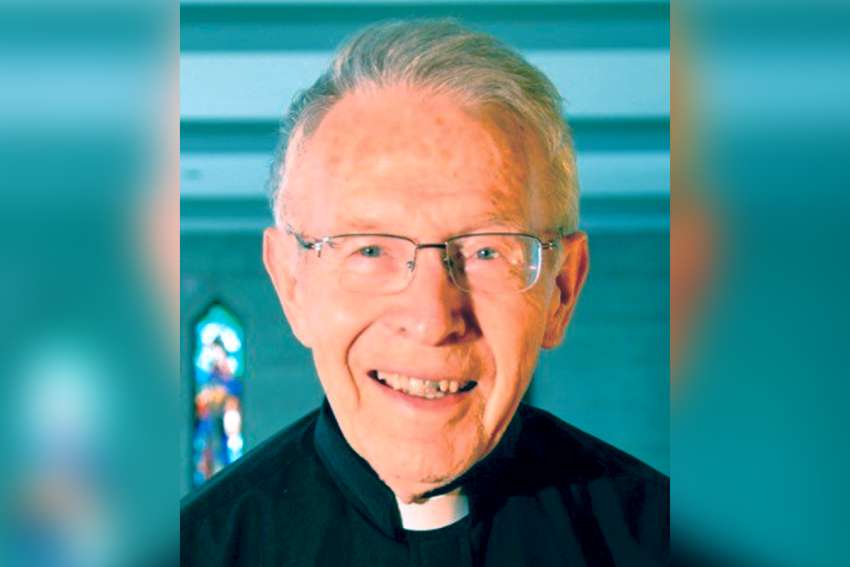I never met Fr. Watrin, yet even from a distance his life betrayed a deep love for Jesus which he shared with others. He regularly showed up in the pages of the newspaper I once edited, the Western Catholic Reporter, in articles about Live-In retreats or occasional teaching at the now-defunct John Paul II Bible School in Radway, Alta.
His ministry grew out of the charismatic renewal movement which shook the Church around the world almost 60 years ago. In the late 1970s and in the 1980s, I had some involvement in the renewal, was baptized in the Spirit and attended several events. That involvement strengthened and deepened my faith, although I never experienced the more flamboyant charismatic manifestations such as being “slain in the Spirit.”
Fr. Watrin’s approach resonated with a wider swath of the population. Intellectually, the charismatic approach is simple. Even so, it draws its followers to deeper study of the Bible.
The outpouring of the Holy Spirit is one major fruit of the Second Vatican Council, even though it was wholly unanticipated. The birth of the charismatic movement came at Duquesne University in Pittsburgh 14 months after the council’s conclusion. Similarly, the establishment of theology schools, often attached to seminaries, took place after the Council. As with many things, it is not a question of either/or, but rather both/and. That is, the Church and each Christian needs both an encounter with the living Lord and solid understanding of the faith. The two should not be opposed to each other.
The theologian Hans Urs von Balthasar declared that theology should be done on one’s knees. He deplored the long history of isolating theological study from the devotional life as if one of those pillars can stand without the other.
Conversely, a strong devotional life with minimal understanding of the faith is also dangerous. It can lead in one of two directions. A solely devotional approach can wither as one’s initial emotional attachment fades. Or one’s devotion can solidify into a narrow, doctrinaire ideology which fails to do justice to the fullness of God’s revelation.
Watrin served as a high school teacher, retreat house director, chaplain and foreign missionary. Those roles are ones which can enable a person to relate to people in all walks of life and to speak their language. Live-Ins are not traditional silent retreats but rather seek to be both uplifting and enjoyable.
Fr. Watrin took as his life’s motto this verse from St. Paul’s first letter to the Thessalonians: “Rejoice always, pray without ceasing, giving thanks in all circumstances.” Out of that perspective came his recent book, Give Thanks: 52 Lessons on Gratitude.
In that book, he recalled that when he was told he must retire, he rebelled inwardly. Then he recalled that Jesus had only three years of active ministry, and he had been given more than 60. His acquiescence transformed him, he wrote. “God can use my trials and struggles and my prayer more than He could my ministry.”
His ministry, he confessed, was too much his own work, and it fed his pride. “Things work for a greater good when I die to my will.”
These are the words of a man who has taken his relationship with Christ to heart. The acceptance of God’s will over my will, not as an act of reluctant resignation, but as one of grateful acceptance is the surest sign of holiness. Knowledge and devotion unite in gratitude for the most difficult of life’s events. This is the mystery of Christ’s passion and death revealed. For even those of us who did not know him, Fr. Watrin’s witness can draw us to Jesus.
(Glen Argan writes his online column Epiphany at https://glenargan.substack.com)


